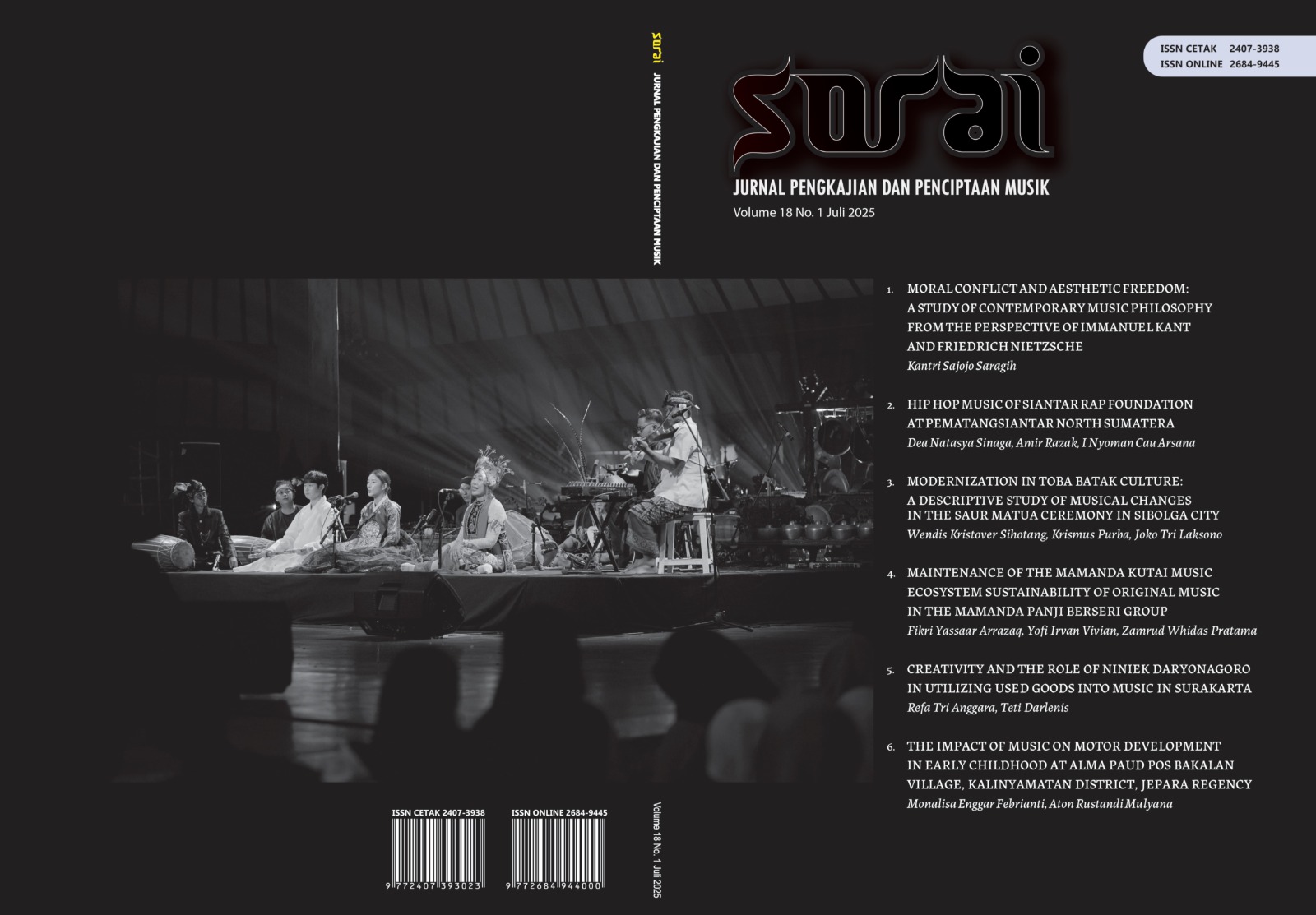HIP HOP MUSIC OF SIANTAR RAP FOUNDATION AT PEMATANGSIANTAR, NORTH SUMATERA
Main Article Content
Abstract
This research examines how Siantar Rap Foundation (SRF) integrates traditional Batak musical elements into the modern hip hop genre through creative musical practices. SRF does not merely adopt hip hop as a global trend, but also fuses it with Batak identity and values through the selection of instruments, musical arrangement, the use of Batak-language lyrics, and the strengthening of visual identity in every performance. Using a qualitative method and an ethnomusicological approach, this research explores the mechanisms of cultural integration in SRF’s works and their impact on the cultural identity of Batak youth. The findings reveal that SRF has successfully created a phenomenon of musical hybridity that is relevant to contemporary developments and capable of reaching national and even global audiences. Through strategies such as consistent music production, live performances in various cities, digital media utilization, and the reinforcement of Batak visual culture, SRF demonstrates that hip hop music can serve as a dialogic space between local and global cultures. This study is expected to enrich the discourse on music, culture, and identity, as well as inspire other musicians to explore local culture through global music genres.
Downloads
Article Details

This work is licensed under a Creative Commons Attribution-ShareAlike 4.0 International License.
Copyright
Authors who publish to Sorai: Jurnal Pengkajian dan Penciptaan Musik agrees to the following terms:
- Authors retain copyright and grant the journal right of first publication with the work simultaneously licensed under a Creative Commons Attribution License (CC BY-SA 4.0) that allows others to share the work with an acknowledgment of the work's authorship and initial publication in this journal.
- Authors can enter into separate, additional contractual arrangements for the non-exclusive distribution of the journal's published version of the work (e.g., post it to an institutional repository or edit it in a book), with an acknowledgment of its initial publication in this journal.
- Authors are permitted and encouraged to post their work online (e.g., in institutional repositories or on their website) before and during the submission process, as it can lead to productive exchanges, as well as earlier and greater citation of published work.
